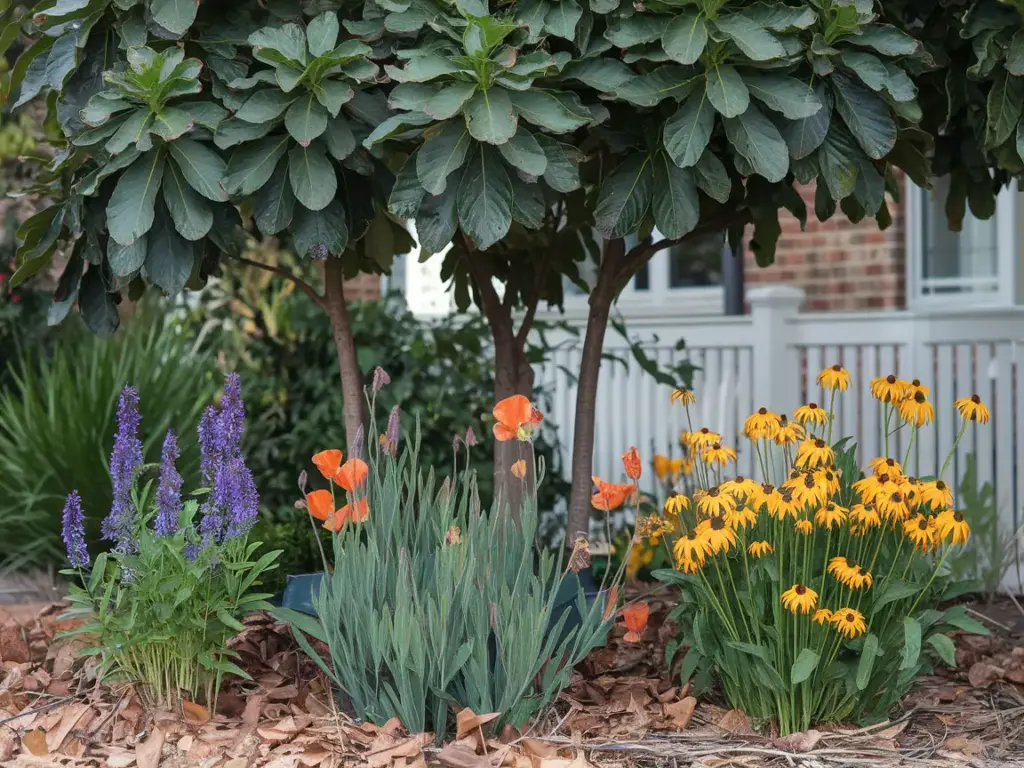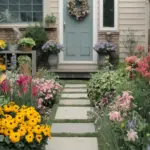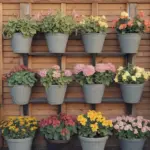Design Idea #7: Native Shade Garden

Let me tell you about my absolute favorite approach to shade gardening – going native! After years of struggling with exotic plants that just couldn’t hack it in my shaded backyard, I had my lightbulb moment when I started looking at what was already growing in nearby woodlands.
Choosing Local Shade-Loving Species
I’ll never forget the day I visited our local native plant nursery. The owner, this wonderful lady with 30 years of experience, showed me how native woodland plants had already evolved to thrive in our exact conditions. Talk about working smarter, not harder!
Some of my go-to native shade lovers include:
- Wild Ginger (perfect ground cover!)
- Solomon’s Seal (those elegant arching stems are to die for)
- Woodland Phlox (brings early spring color)
- Native Ferns (my Ostrich Ferns are absolutely thriving)
Creating a Wildlife Haven
Here’s something cool – once I switched to native plants, my garden literally came alive! Birds, butterflies, and even some shy woodland creatures started showing up. It’s like hosting a daily nature show in your backyard!
I’ve learned to:
- Leave some fallen leaves as natural mulch
- Include berry-producing native shrubs like Elderberry
- Add a small water feature using natural stone
- Create brush piles in discrete corners for wildlife shelter
Smart Watering Strategies
Let me share a game-changing tip – native shade gardens are incredibly water-efficient when set up correctly. I used to waste so much time and water before understanding this! Now, I follow these practices:
- Group plants with similar water needs
- Use leaf mold mulch to retain moisture
- Install a simple drip irrigation system
- Let nature do most of the work during rainy seasons
Natural Elements Integration
The secret sauce to making your native shade garden look authentic? Natural materials! I source local stones and fallen logs to create that woodland feel. It’s amazing how these elements can transform a basic backyard into a slice of forest paradise.
My favorite techniques include:
- Using moss-covered logs as natural borders
- Creating stepping stone paths with local flagstone
- Building small rock gardens in partially shaded spots
- Incorporating nurse logs for natural plant propagation
Want to know something exciting? In our next section, I’ll show you how to create a stunning four-season shade garden that looks amazing year-round. Just click the next button below to discover how to maintain visual interest in your shade garden through every season – including those tricky winter months! Trust me, you won’t want to miss these tips for keeping your garden gorgeous even when the snow flies.









GIPHY App Key not set. Please check settings